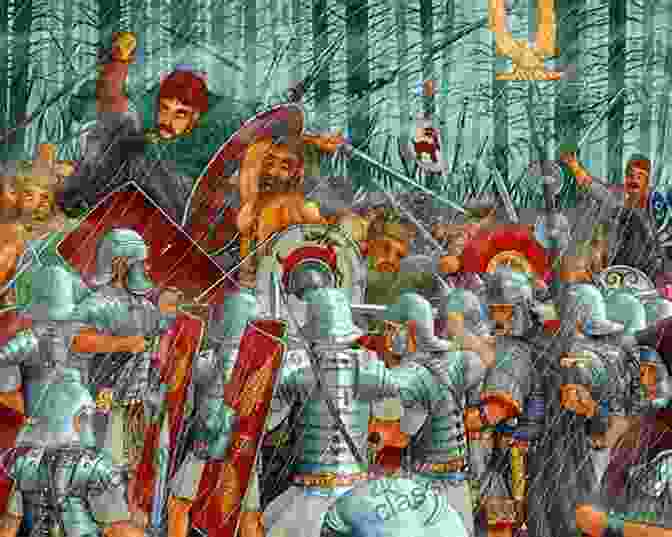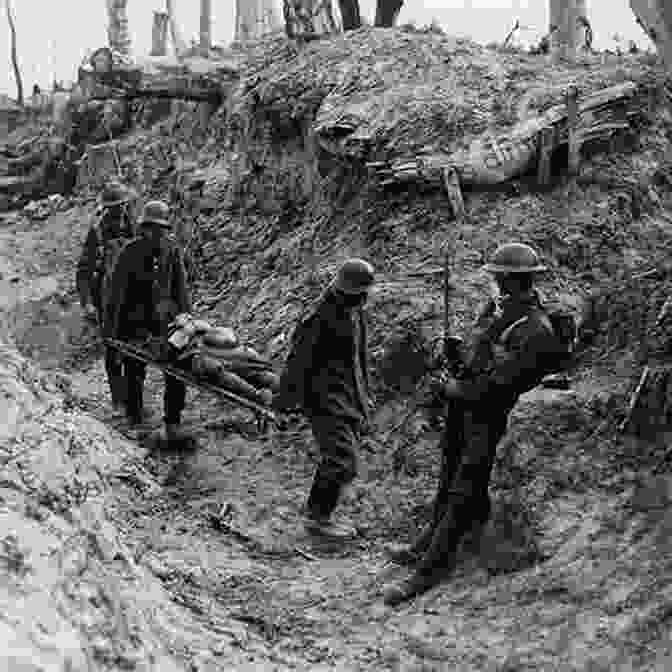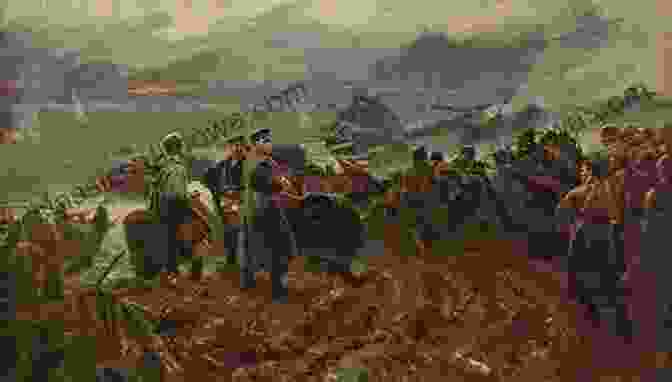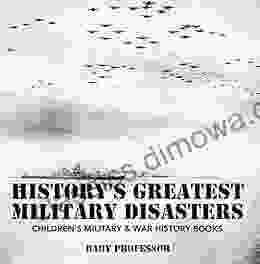History's Greatest Military Disasters: Uncovering the Terrifying Truth

War is a brutal and unforgiving affair, and throughout history, there have been countless military disasters that have cost the lives of millions of soldiers and civilians alike. These disasters are often the result of poor planning, bad luck, or simply overwhelming enemy forces, but their impact is always devastating.
4.1 out of 5
| Language | : | English |
| File size | : | 2405 KB |
| Screen Reader | : | Supported |
| Print length | : | 42 pages |
In this article, we will explore some of the greatest military disasters in history, from the ancient world to the modern era. We will learn about the mistakes that led to these disasters, the human cost of war, and the lessons that can be learned from these tragic events.
The Battle of Cannae (216 BC)
The Battle of Cannae was one of the most decisive battles in ancient history, and it remains one of the greatest military disasters of all time. The battle was fought between the Roman Republic and the Carthaginian Empire, and it resulted in a Carthaginian victory that nearly destroyed the Roman army.
The Roman army was led by Lucius Aemilius Paullus, who made a number of tactical mistakes that led to the disaster. Paullus deployed his army in a formation that was too dense, which made it vulnerable to the Carthaginian cavalry. He also failed to anticipate the Carthaginian use of elephants, which wreaked havoc on the Roman ranks.
The Carthaginian army was led by Hannibal, one of the greatest military commanders in history. Hannibal used a brilliant tactical maneuver to surround the Roman army, and he then Free Downloaded his cavalry to charge. The Roman army was trapped and slaughtered, with over 50,000 soldiers killed.

The Battle of the Teutoburg Forest (9 AD)
The Battle of the Teutoburg Forest was a major defeat for the Roman Empire, and it marked the end of Roman expansion in northern Europe. The battle was fought between the Roman legions and the Germanic tribes, and it resulted in a complete Roman defeat.
The Roman army was led by Publius Quinctilius Varus, who made a number of strategic mistakes that led to the disaster. Varus underestimated the strength of the Germanic tribes, and he failed to secure his supply lines. The Roman army was also ambushed by the Germanic tribes in the Teutoburg Forest, and the legions were slaughtered.
The Battle of the Teutoburg Forest was a major turning point in Roman history. It marked the end of Roman expansion in northern Europe, and it also led to the decline of the Roman Empire.

The Battle of the Somme (1916)
The Battle of the Somme was one of the bloodiest battles in human history. The battle was fought between the British and French armies on one side, and the German army on the other. The battle lasted for four months, and it resulted in over one million casualties.
The British and French armies launched a massive offensive on the first day of the battle, but they were stopped by the German army. The British army suffered particularly heavy losses, with over 60,000 soldiers killed or wounded on the first day alone.
The Battle of the Somme was a major turning point in World War I. It showed that the war would not be over quickly, and it led to a decline in public morale in both Britain and France.

The Battle of Stalingrad (1942-1943)
The Battle of Stalingrad was one of the most important battles of World War II. The battle was fought between the German army and the Soviet army, and it resulted in a Soviet victory that turned the tide of the war.
The German army launched an offensive on Stalingrad in the summer of 1942. The German army was initially successful, and it captured most of the city. However, the Soviet army launched a counteroffensive in the winter of 1942-1943, and they surrounded the German army.
The German army was trapped in Stalingrad for over two months. The Soviet army bombarded the city, and the German army suffered from hunger, cold, and disease. Eventually, the German army surrendered, and over 300,000 German soldiers were killed or captured.
The Battle of Stalingrad was a major turning point in World War II. It showed that the German army could be defeated, and it led to a decline in German morale.

Lessons Learned from Military Disasters
Military disasters can teach us a number of valuable lessons. These lessons can help us to avoid future disasters, and they can also help us to prepare for the challenges of war.
Here are some of the lessons that we can learn from military disasters:
- Be prepared. One of the most important lessons that we can learn from military disasters is to be prepared. This means having a well-trained army, a well-equipped army, and a well-developed plan.
- Don't underestimate your enemy. Another important lesson that we can learn from military disasters is to never underestimate your enemy. This means studying your enemy, understanding their strengths and weaknesses, and expecting them to fight back.
- Be flexible. Things don't always go according to plan in war. If you are not flexible, you may be caught off guard and defeated. It is important to be able to adapt to changing circumstances and to make decisions quickly.
- Don't give up. Even if you are facing overwhelming odds, it is important to never give up. History is full of examples of armies that have overcome seemingly insurmountable challenges. If you are determined, you can achieve anything.
Military disasters are a tragic part of human history. They are a reminder of the horrors of war, and they teach us valuable lessons about the importance of preparedness, planning, and determination.
By studying military disasters, we can avoid future disasters and prepare for the challenges of war. We can also learn about the human cost of war, and we can honor the memory of those who have died in battle.
4.1 out of 5
| Language | : | English |
| File size | : | 2405 KB |
| Screen Reader | : | Supported |
| Print length | : | 42 pages |
Do you want to contribute by writing guest posts on this blog?
Please contact us and send us a resume of previous articles that you have written.
 Book
Book Novel
Novel Page
Page Chapter
Chapter Text
Text Story
Story Genre
Genre Reader
Reader Library
Library Paperback
Paperback E-book
E-book Magazine
Magazine Newspaper
Newspaper Paragraph
Paragraph Sentence
Sentence Bookmark
Bookmark Shelf
Shelf Glossary
Glossary Bibliography
Bibliography Foreword
Foreword Preface
Preface Synopsis
Synopsis Annotation
Annotation Footnote
Footnote Manuscript
Manuscript Scroll
Scroll Codex
Codex Tome
Tome Bestseller
Bestseller Classics
Classics Library card
Library card Narrative
Narrative Biography
Biography Autobiography
Autobiography Memoir
Memoir Reference
Reference Encyclopedia
Encyclopedia Baker Manning
Baker Manning Olive Ann Burns
Olive Ann Burns Badi H Baltagi
Badi H Baltagi Ashok Charan
Ashok Charan Barney Norris
Barney Norris Jie Zhang
Jie Zhang Sharon Dogar
Sharon Dogar Navishta Tayyaba
Navishta Tayyaba Ashis Ray
Ashis Ray Iwan Rhys Morus
Iwan Rhys Morus Culture Smart
Culture Smart Vuvu Publications
Vuvu Publications Jacquelyn Tracy Wilson
Jacquelyn Tracy Wilson Lisbeth Fittipaldi
Lisbeth Fittipaldi Ava Dellaira
Ava Dellaira Peter Goullart
Peter Goullart Zack Emerson
Zack Emerson Audrey Sauble
Audrey Sauble Egon Balas
Egon Balas Kira Salak
Kira Salak
Light bulbAdvertise smarter! Our strategic ad space ensures maximum exposure. Reserve your spot today!

 Reginald CoxPablo Picasso's Confusing Art: A Revolutionary Textbook for Children's Art,...
Reginald CoxPablo Picasso's Confusing Art: A Revolutionary Textbook for Children's Art,...
 Percy Bysshe ShelleyUnleash the Power of Finite Element Modeling: The Ultimate Guide for...
Percy Bysshe ShelleyUnleash the Power of Finite Element Modeling: The Ultimate Guide for...
 Bret MitchellDatabase of Histopathological Diagnosis Based on the Breeds 2024: Unlocking...
Bret MitchellDatabase of Histopathological Diagnosis Based on the Breeds 2024: Unlocking... Holden BellFollow ·11.5k
Holden BellFollow ·11.5k Marcel ProustFollow ·13.1k
Marcel ProustFollow ·13.1k George BellFollow ·12.3k
George BellFollow ·12.3k Xavier BellFollow ·3.6k
Xavier BellFollow ·3.6k Clarence BrooksFollow ·2.2k
Clarence BrooksFollow ·2.2k Finn CoxFollow ·19.9k
Finn CoxFollow ·19.9k Eugene ScottFollow ·6.3k
Eugene ScottFollow ·6.3k Tennessee WilliamsFollow ·3.4k
Tennessee WilliamsFollow ·3.4k

 Marcus Bell
Marcus BellHigh Lonesome: A Literary Journey into the Heart of the...
<p>Hannah weaves a intricate...

 Gabriel Hayes
Gabriel HayesRediscover Gideon Green's Timeless Adventures in "Gideon...
Embark on an Extraordinary Journey with...

 Samuel Taylor Coleridge
Samuel Taylor ColeridgeEscape to a Literary Haven: Discover the Enchanting World...
Embark on an Extraordinary Literary...
4.1 out of 5
| Language | : | English |
| File size | : | 2405 KB |
| Screen Reader | : | Supported |
| Print length | : | 42 pages |












